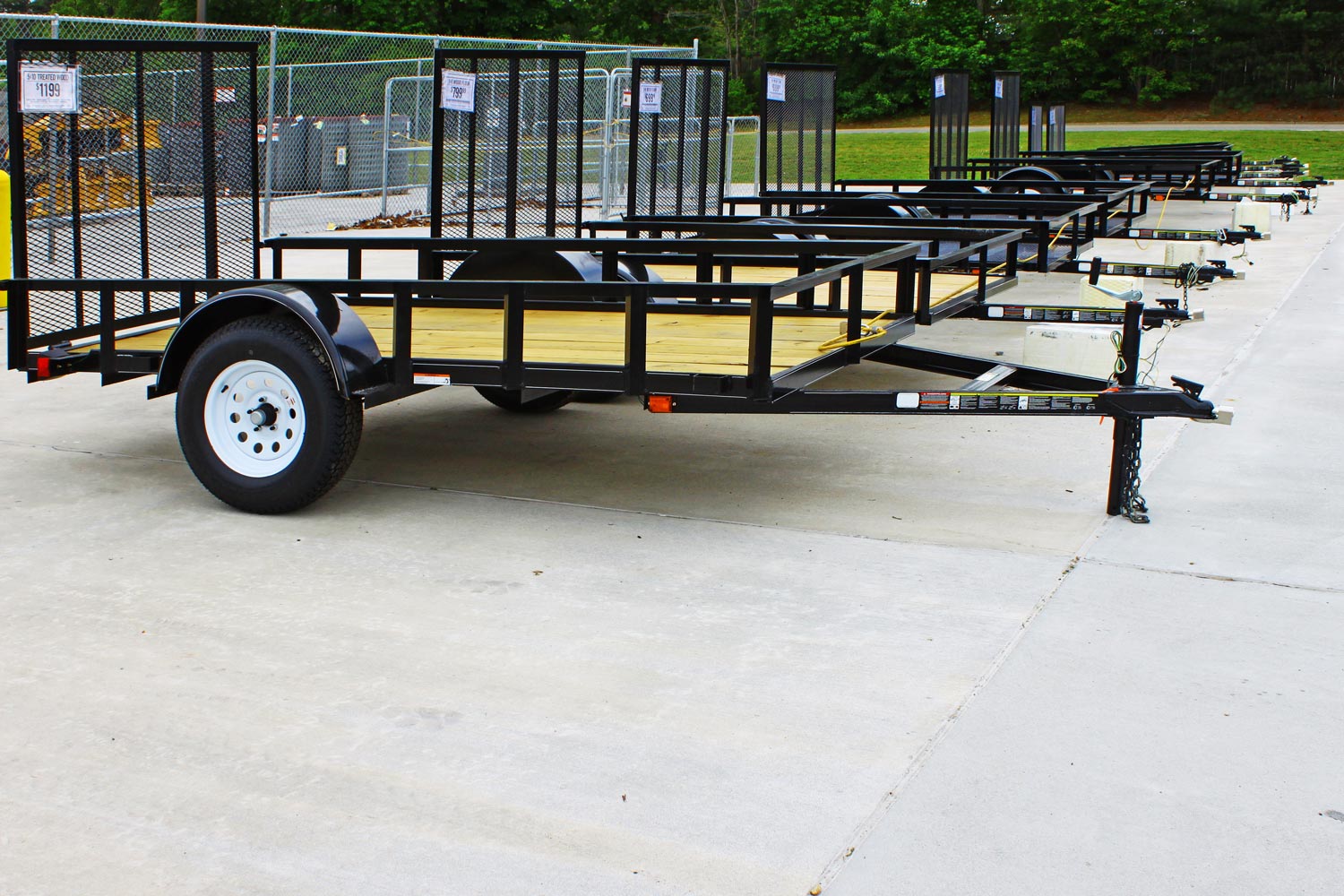What Size Utility Trailer Should I Get?
Here's what to keep in mind when shopping for a utility trailer.
 Shutterstock
Shutterstock
Article QuickTakes:
When shopping for a utility trailer, it pays to know some basic lingo, how much weight your intended tow vehicle can safely manage, and what kinds of utility trailers are out there.
While trailers for a specific need — boat trailers, car trailers, and motorcycle trailers, for example — may dictate the towing vehicle’s abilities, utility trailers work in the opposite way. You may find yourself attaching far more trailer to your hitch than you need if you’re in the market for something utilitarian to haul around, say, lawn equipment or a side-by-side. This primer will cover the basics.
Trailering 101
First things first: You need to understand a couple of acronyms: GVWR and GCWR. GVWR stands for gross vehicle weight rating and comprises the curb weight of the tow vehicle, its payload (i.e., the max weight of the passengers and cargo), and the tongue weight of an attached trailer. The GCWR, or gross combined weight rating, includes all of that plus the maximum capacity of the trailer.
As for tongue weight, that's the amount of force that the front tip of a trailer places on the ball-mounted hitch of the tow vehicle. It should be within 10% to 15% of the total trailer weight.
Know What Your Particular Tow Vehicle Can Handle
Equipment matters when it comes to towing. On their landing pages and in TV commercials, automakers like to tout the towing capabilities of their SUVs and trucks, but that advertising almost always comes with the disclaimer "when properly equipped." Often, a buyer needs to select a particular powertrain, driveline, cab-and-bed combo, and/or max towing package to achieve this number, and your particular example may have a much lower rating.
For example, the 2022 Ford F-150 can tow up to 14,000 pounds, but that's only if you choose a rear-drive SuperCab or SuperCrew model with the long bed, the optional 3.5-liter V6, and the towing package. Choose a short-bed SuperCab 4x2 with the 3.3-liter V6 and your F-150 may boast a rating as low as 4,900 pounds. You'll find the specs you need in your owner's manual, on the manufacturer's trailering guide, and/or on a label in your vehicle's driver's-side doorjamb.
Figure Out What You're Going to Haul
This may seem obvious, but think carefully and realistically about everything you plan to carry in or on your utility trailer. Consider the size, shape, and weight of your cargo. You may need to approximate the heft of certain things to make sure you find a trailer with the proper capacity. When in doubt, be generous with your estimates. It wouldn't pay to underestimate the load and strain facing your tow vehicle.
That said, it also doesn't make sense to account for every eventuality by purchasing something much larger than you need. U-Haul and other equipment-rental companies exist for those rare occasions.
Trailer Types
The last thing you should decide before shopping is what style of trailer best serves you.
- An enclosed trailer will protect your cargo from the elements (and prying eyes), but it tends to weigh and cost more than a comparable open trailer. It's also harder to see around in traffic.
- An open trailer is easier to load and unload and will accommodate oddly shaped items better than a walled unit, but it may not be as aerodynamic. Additionally, if you plan to leave it loaded overnight, or outside, it may not be as secure as an enclosed trailer.



